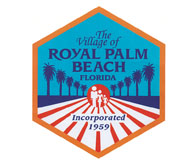Royal Palm Beach officials appear ready to support efforts to enact a new state law regulating sober houses.
Councilman David Swift noted at the March 6 meeting of the Royal Palm Beach Village Council that he attended a forum on the topic last week in Wellington, attended by more than 50 people, where staff addressed public concerns, including the lack of local regulation.
Wellington staff described sober houses as congregate living facilities. “They’re calling them that in Wellington. I don’t know if we’re calling them that or not,” Swift said. “They can exist in single-family neighborhoods and contain four or more unrelated individuals who are recovering from substance-abuse problems.”
Swift said the facilities are covered under the federal Americans with Disabilities and Fair Housing acts, and local municipalities are prohibited from passing laws regulating them or discriminating against them in any way.
“We have sober houses in Royal Palm Beach, and this council will have to deal with this issue sometime next year,” he said. “I’m sure there are people in our community interested in this issue.”
Swift said two bills are currently pending in the State Legislature, House Bill 479 sponsored by State Rep. Bill Hager (R-Delray Beach) and Senate Bill 582 sponsored by State Sen. Jeff Clemens (D-Lake Worth). They attempt to set some regulations for the facilities.
HB 479 would require sober house transitional living homes to register annually with the Florida Department of Children & Families, require background screening of certain personnel, provide for fees and penalties, and authorize DCF to conduct inspections and to deny, suspend or revoke registration of a home.
“Without getting into all the details, I’d just like to say our council should strongly support this legislation that addresses the regulation of sober houses,” Swift said.
Vice Mayor Jeff Hmara said the Palm Beach County League of Cities has made regulation of sober houses a priority.
“It was last year, and unfortunately, it was not even able to get to the floor,” Hmara said. “Our concern is about regulating these houses, so that these houses are operated properly with the right certifications and the right capabilities.”
Hmara said the League of Cities had passed a resolution supporting the two bills in the legislature. “Hopefully, we’ll bring it up this time, and we’ll adopt it,” he said.
In other business, several Royal Palm Beach residents questioned the council’s decision to offer the construction company that built Commons Park a $500,000 settlement.
Joseph Murratti of Kings Way said he had read that the village had made errors to cause delays that had resulted in the village charging West Construction daily penalties for not meeting the construction deadline.
“If the village didn’t cause those delays, then I’m opposed to a half-million dollars being given to settle,” Murratti said. “I don’t see where it’s fair if they’re at fault.”
Village Manager Ray Liggins said that the alleged errors by the village were put in the claim against the village by West Construction.
“There are no errors that the village has admitted to or that can be discussed,” Liggins said. “The lawsuit is out there. They are trying to identify what that is and look at that in the claim. The half-million dollars is a final payment in accordance with the contract.”
Liggins said his recommendation would be to close the books on the project rather than continue to fight it out.
“The contract was a $15.9 million contract that did not receive final completion,” he explained. “It did not receive substantial completion March 2, 2013. They never received final completion for things that had not been completed. We’re recommending to finish this project and close it on our books, and pay a final payment of a half-million dollars. That would bring the total paid to date to $15.4 million.”








